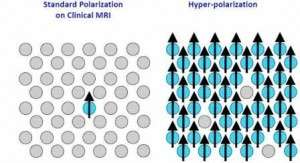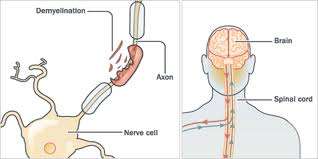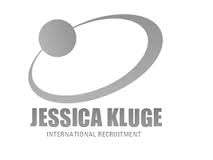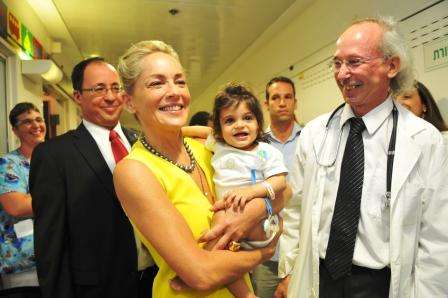Diagnosis of a lesion without the need of a biopsy
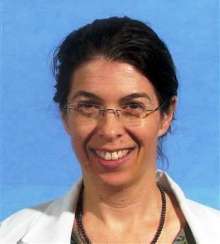
Hadassah physician awarded €1,650,000 grant by European Union
Dr. Rachel Katz-Brull, director of the Center for Hyperpolarized MRI Molecular Imaging at the Hadassah Medical Center, has been awarded a €1,650,000 grant by the European Research Council to investigate the effectiveness of a non-radioactive substance in detecting cancer via imaging–a substance discovered by Dr. Katz-Brull and her colleagues.
Breaking new ground for MRI imaging in diagnosing cancerous lesions and observing the body in real time as it metabolizes various molecules, Hadassah’s Center for Hyperpolarized MRI Molecular Imaging is an innovator in its domain. Using a technique called hyperpolarization, the Center is able to increase the sensitivity of an MRI scan 10,000 fold.
Specifically, two of the Center’s ultimate goals are to diagnose a lesion accurately enough to decide whether it requires treatment and which type, without the need for a biopsy; and to be able to understand how medications given for neuropsychiatric/degenerative conditions such as Parkinson’s disease, Alzheimer’s disease, schizophrenia, Attention Deficit Hyperactivity Disorder (ADHD), and severe depression function within the body and prove therapeutic. Under the directorship of Dr. Rachel Katz-Brull, the Center is developing its own unique molecules (called molecular imaging probes) that will help unravel this mystery. A major advantage to these probes is that they are nonradioactive, making the MRI an option for children, pregnant women, and those patients who need repeated metabolic imaging scans. These probes allow the researchers to visualize a specific activity, a function at the molecular level, within the body. Conventional MRI is not sensitive enough to “see” these molecules.
As Dr. Katz-Brull relates, better non-invasive markers for the biological characterization of questionable lesions “are desperately needed to provide more accurate diagnoses and staging, as well as to reduce unnecessary biopsies, which can result in morbidity, stress, and anxiety. When it comes to neurobiological diseases and neurodegenerative diseases, physicians are in desperate need for biomarkers–a quantifiable biological sign of disease–for guiding treatment and making sure that the treatment does benefit the individual patient.”
Sources: www.hadassahinternational.org, www.jpost.com.
For more than 100 years, Hadassah (www.hadassah-med.com) has been a leader in medicine and nursing in Israel, laying the foundation and setting the standards for the country’s modern health care system. The majority of medical breakthroughs in Israel have taken place there. With more than 130 departments and clinics, Hadassah-Ein Kerem provides Israel’s most advanced diagnostic and therapeutic services for the local and national population and a significant number of international patients.



